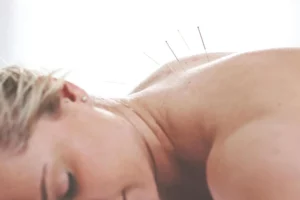What is Aromatherapy?
Aromatherapy is a holistic healing practice that utilizes the therapeutic properties of aromatic plant extracts, known as essential oils, to promote emotional, physical, and mental well-being. The inhalation or topical application of these essential oils can have various effects on the body and mind, helping individuals feel better in numerous ways. The aromatic molecules in essential oils engage with the limbic system, the brain region that governs emotions, memory, and mood, promoting relaxation, reducing stress, and enhancing mental clarity.
What is an Aromatherapy Massage and How it Works
An aromatherapy massage is a therapeutic massage technique that combines the benefits of massage therapy with the use of essential oils. During an aromatherapy massage session, the massage therapist incorporates the application of essential oils into the massage oil or lotion used during the treatment.
The essential oils used in aromatherapy massage are carefully selected based on their specific therapeutic properties and the desired effect on the client. These oils are extracted from various plants and possess unique aromatic compounds that can stimulate the senses and promote healing.
During the massage, the therapist applies gentle to firm pressure on the body using different massage techniques, such as Swedish massage or tuina massage. As they work on the muscles and tissues, the aroma of the essential oils for aromatherapy fills the air, creating a soothing and therapeutic atmosphere.
The inhalation and absorption of essential oils during the massage have several effects on the body. Firstly, the aroma of the oils stimulates the olfactory system, which is connected to the brain’s limbic system responsible for emotions and memory. This can evoke relaxation, reduce stress, and uplift the mood.
Additionally, essential oils can penetrate the skin and enter the bloodstream, allowing their therapeutic properties to exert physical effects. Different essential oils have various properties, such as anti-inflammatory, analgesic, or calming effects, which can help alleviate muscle tension, reduce pain, improve circulation, and enhance overall well-being.
What Conditions are Treated With Aromatherapy?
Aromatherapy is a versatile complementary therapy used to support a wide range of physical and emotional conditions. It’s commonly employed to alleviate stress, anxiety, and depression by harnessing calming essential oils like lavender or bergamot, which influence the brain’s limbic system to promote relaxation and emotional balance. For physical ailments, aromatherapy is often integrated into pain management protocols, addressing chronic conditions like arthritis or muscle tension using oils such as eucalyptus or ginger, known for their anti-inflammatory properties. Insomnia and sleep disorders also benefit from essential oils like chamomile or sandalwood, which help regulate the nervous system and encourage restful sleep. Furthermore, respiratory issues, such as asthma or colds, may be eased through the use of peppermint or tea tree oil, which have decongestant and antimicrobial effects. While aromatherapy is not a substitute for medical treatment, its holistic approach provides valuable support for managing chronic conditions, boosting immune health, and improving overall well-being.
The Benefits of Aromatherapy
Aromatherapy works through the inhalation or topical application of essential oils, which are highly concentrated extracts from plants. These oils contain aromatic compounds that can stimulate the olfactory system and have various effects on the body and mind.
When we inhale the scent of essential aromatherapy oils, the odor molecules travel through the nose and stimulate the olfactory receptors. These receptors send signals to the brain’s limbic system, which is involved in emotions, memory, and behavior. This can result in the release of certain neurotransmitters, such as serotonin or endorphins, which can induce relaxation, uplift mood, or promote a sense of well-being.
In addition to inhalation, essential oils can also be applied topically through massage or diluted in carrier oils, creams, or lotions. When applied to the skin, the oils are absorbed and can enter the bloodstream, allowing their beneficial properties to take effect. The compounds in the oils may have direct physiological effects, such as reducing inflammation, promoting circulation, or soothing muscles and joints.
Aromatherapy benefits and its effectiveness can vary depending on the individual and the specific oils used. While some people may experience immediate benefits and find relief from certain symptoms, others may have a more subtle response. The therapeutic effects of aromatherapy are often subjective and can be influenced by factors such as personal preferences, individual sensitivities, and the quality and purity of the oils used.
Key Benefits of Aromatherapy:
- Stress Reduction. Inhalation of essential oils can help in reducing stress and anxiety, promoting a sense of calm and relaxation.
- Mood Enhancement. Certain aromas can uplift the mood, creating a positive atmosphere and enhancing emotional well-being.
- Improved Sleep. Some essential oils have sedative properties that can aid in improving sleep quality and managing insomnia.
- Pain Relief. Aromatherapy can be effective in alleviating pain, including headaches, muscle pain, and joint discomfort.
- Enhanced Cognitive Function. Certain oils can help in improving concentration, focus, and cognitive performance.
- Immune System Support. Some essential oils have properties that can support the immune system, potentially reducing the risk of infections.
- Skin Health. When applied topically, essential oils can benefit skin health by reducing inflammation and promoting healing.
Aromatherapy benefits and its effectiveness can vary depending on the individual and the specific oils used. While some people may experience immediate benefits and find relief from certain symptoms, others may have a more subtle response. The therapeutic effects of aromatherapy are often subjective and can be influenced by factors such as personal preferences, individual sensitivities, and the quality and purity of the oils used.
Read Also: Cupping Aftercare: What to do after Cupping and what to Avoid
Experience Aromatherapy with Pulse Acupuncture
Aromatherapy oil massage at Pulse Acupuncture is a luxurious and holistic approach to enhancing your well-being and beauty. By combining the therapeutic properties of essential oils with the ancient practice of acupuncture, you can experience a unique and rejuvenating treatment that promotes both physical and mental harmony.
During an aromatherapy relaxation and massage session at our acupuncture clinic, carefully selected essential oils are used to create a soothing and aromatic atmosphere. These oils are derived from plants and possess distinct scents that can evoke relaxation, uplift the mood, and promote a sense of tranquility. The aroma fills the air, creating a serene ambiance that helps you unwind and escape from the stresses of daily life.
Aromatherapy – FAQ
What is Aromatherapy?
Aromatherapy is a holistic healing practice that uses natural plant extracts, often in the form of essential oils, to promote physical, emotional, and mental well-being. These oils are commonly diffused, applied topically, or inhaled.
How Does Aromatherapy Work?
Aromatherapy works through the sense of smell and skin absorption. Essential oils stimulate the olfactory system, influencing brain regions like the limbic system, which affects emotions, memory, and stress levels. When applied to the skin, the oils may interact with the body in other therapeutic ways.
Is Aromatherapy Safe?
When used correctly, aromatherapy is generally safe. However, it’s important to dilute essential oils with carrier oils before applying them to the skin and avoid direct ingestion unless directed by a professional. Always perform a patch test to check for allergies or skin sensitivities.
-
Marina Doktorman, M.S., L.Ac., is an experienced acupuncturist who obtained her Masters of Acupuncture from the Tri-State College of Acupuncture in New York City in 2001. During her studies, she focused on Chinese Herbology, a branch of Traditional Chinese Medicine (TCM) that utilizes herbs to complement acupuncture treatments. Marina is licensed in both New York (NY) and New Jersey (NJ) and holds a Diplomate of Acupuncture from the National Certification Commission for Acupuncture and Oriental Medicine (NCCAOM), indicating her expertise in the field.







